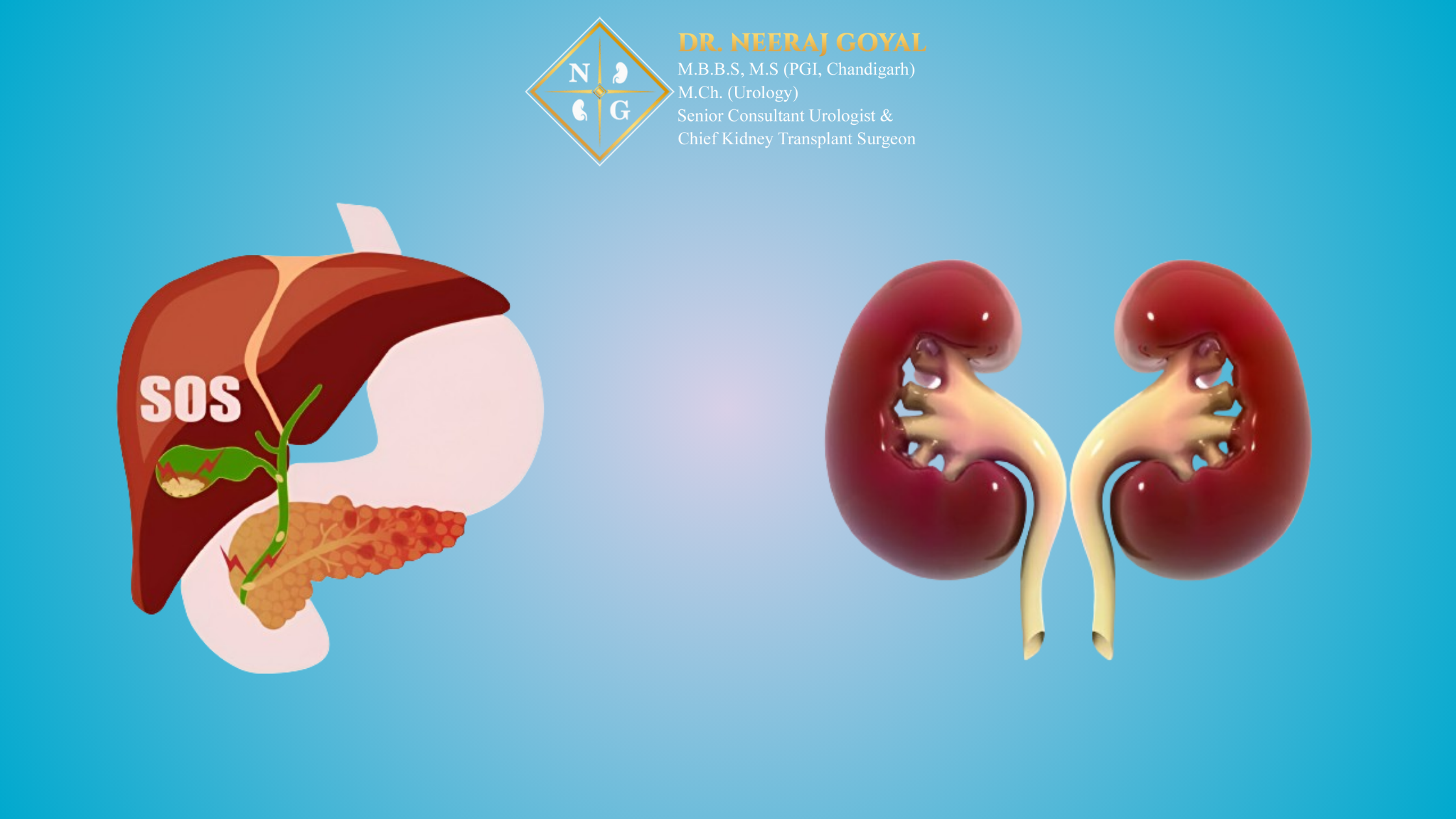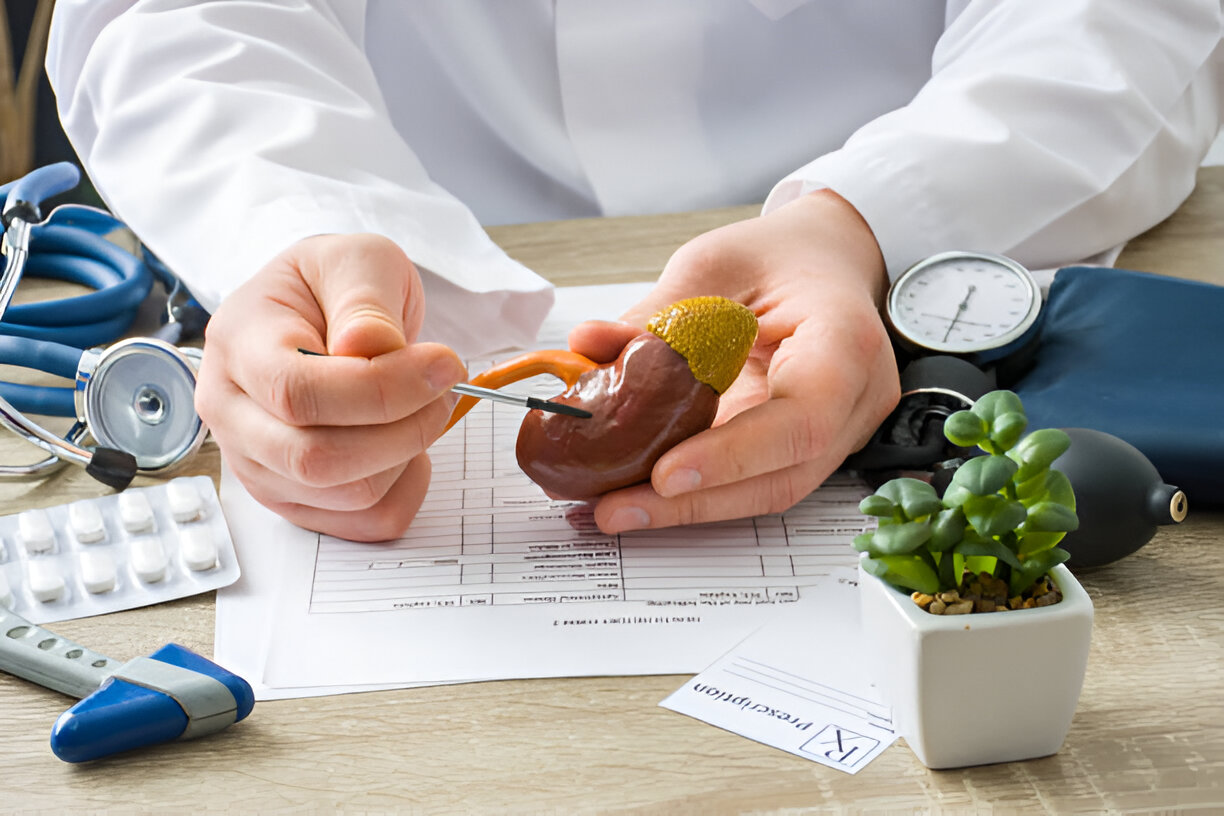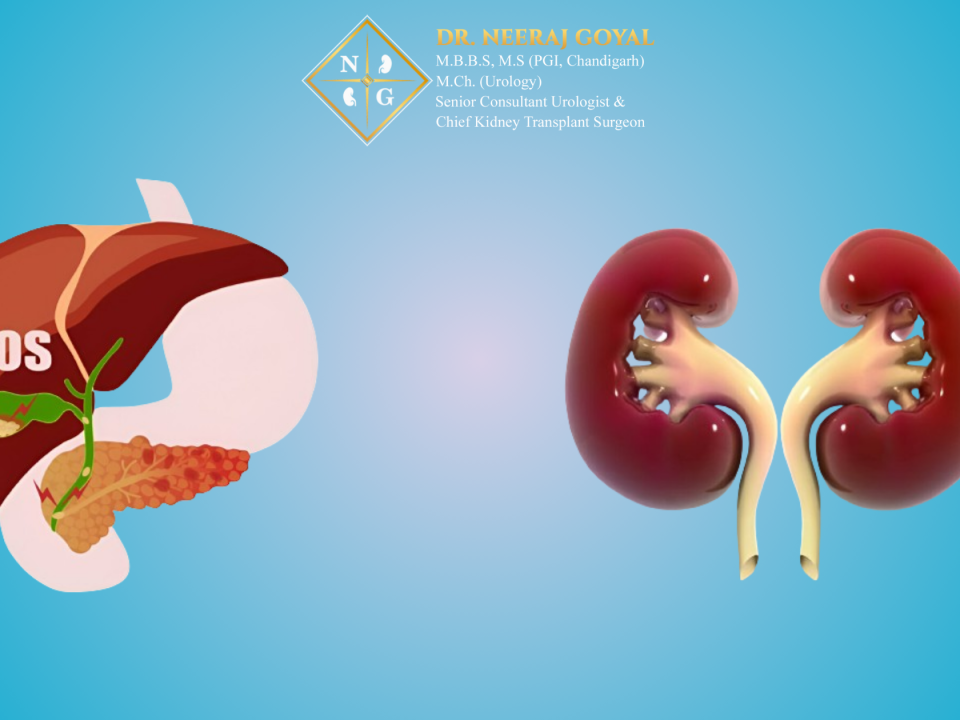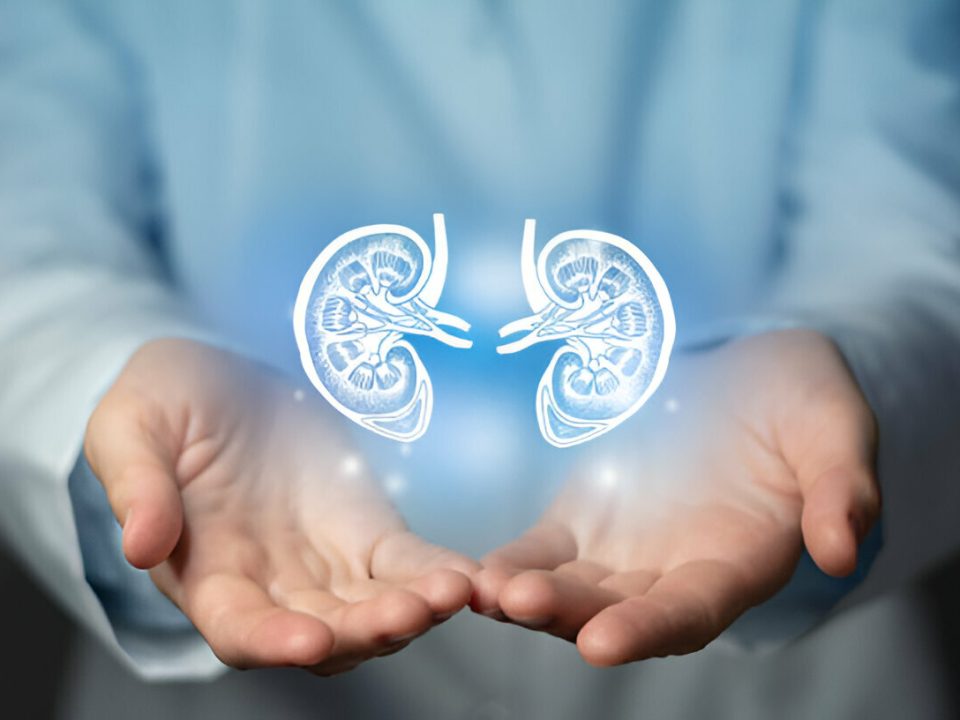
Gallbladder Stones vs. Kidney Stones: A Comparison
July 15, 2024
Common Kidney Problems: When to Seek Help
September 6, 2024Introduction:
Kidney infections in men, like those in women, are serious medical conditions that require prompt treatment. However, the incidence and presentation may differ slightly due to anatomical and lifestyle differences.
Symptoms:
The symptoms of a kidney infection in men are similar to those in women and may include:
- Fever and chills
- Back, side, or groin pain
- Abdominal pain
- Frequent urination
- Strong, persistent urge to urinate
- Burning sensation or pain when urinating
- Nausea and vomiting
- Pus or blood in the urine
- Cloudy or foul-smelling urine
- Fatigue or malaise
Causes:
Kidney infections in men are usually caused by bacteria, most commonly Escherichia coli (E. coli), which can enter the urinary tract through the urethra. Factors that can lead to infections include:
- Bladder or urinary tract infection (UTI): If a lower UTI is untreated or poorly treated, it can spread to the kidneys.
- Obstruction: Kidney stones, an enlarged prostate, or other obstructions can block the flow of urine, increasing the risk of infection.
- Urinary catheter use: Prolonged use of catheters can introduce bacteria into the urinary tract.
- Sexual activity: Certain types of sexual activity can introduce bacteria into the urethra.
- Weakened immune system: Conditions such as diabetes or HIV can impair the body’s ability to fight infections.
Risk Factors:
- Urinary tract blockages: Such as kidney stones or an enlarged prostate.
- Catheter use: Prolonged catheterization increases the risk of infection.
- Immunosuppression: Men with weakened immune systems due to diabetes or medications.
- Uncircumcised men: Higher risk of bacterial buildup around the foreskin.
- Prostate problems: Conditions like benign prostatic hyperplasia (BPH) can cause urinary retention and increase the risk of infection.
Diagnosis:
- Urinalysis: To detect bacteria, blood, or pus in the urine.
- Urine culture: To identify the specific bacteria causing the infection.
- Blood cultures: To check if the infection has spread to the bloodstream.
- Imaging tests: An ultrasound, CT scan, or X-ray to look for abnormalities in the kidneys or urinary tract.
Treatment:
- Antibiotics: The main treatment is antibiotics. The type and duration depend on the severity of the infection and the bacteria causing it. Common antibiotics include ciprofloxacin, levofloxacin, and trimethoprim-sulfamethoxazole.
- Hospitalization: Severe infections may require hospitalization for intravenous antibiotics.
- Pain relief: Over-the-counter pain relievers like acetaminophen or ibuprofen can help manage pain and fever.
- Hydration: Drinking plenty of fluids helps flush bacteria from the urinary tract.
Prevention:
- Hydration: Drink plenty of water to help flush out bacteria from the urinary tract.
- Urination habits: Urinate frequently and don’t delay when you feel the urge.
- Hygiene: Maintain good personal hygiene, especially around the genital area.
- Safe sexual practices: Practice good hygiene before and after sexual activity, and consider urinating after intercourse to flush out bacteria.
- Manage prostate health: Regular check-ups and managing conditions like BPH can reduce the risk of urinary retention and infection.
What are the specific treatment options if antibiotics do not work or if the infection is recurrent?
If antibiotics do not effectively treat a kidney infection or if the infection is recurrent, several additional treatment options and strategies can be considered:
Extended Antibiotic Therapy
- Longer Duration: Sometimes, extending the duration of antibiotic therapy beyond the usual course can help eliminate persistent infections.
- Switching Antibiotics: If the initial antibiotic is not effective, a different antibiotic that the bacteria are more sensitive to may be prescribed based on urine culture and sensitivity results.
Intravenous (IV) Antibiotics
- Hospitalization: Severe or non-responsive kidney infections may require hospitalization for administration of IV antibiotics. This ensures higher concentrations of the medication directly into the bloodstream.
- Outpatient IV Therapy: In some cases, patients can receive IV antibiotics as an outpatient, often through a PICC line (Peripherally Inserted Central Catheter).
Drainage Procedures
- Abscess Drainage: If the infection has led to the formation of an abscess in the kidney, a drainage procedure may be necessary. This can be done surgically or via a percutaneous (through the skin) approach under imaging guidance.
- Nephrostomy Tube: A tube may be inserted into the kidney to drain urine directly from the kidney, bypassing the obstruction.
Surgical Intervention
- Removal of Obstructions: Surgery may be necessary to remove kidney stones, correct structural abnormalities, or address other obstructions in the urinary tract that contribute to recurrent infections.
- Repair of Reflux: Surgical correction of vesicoureteral reflux (backflow of urine from the bladder into the kidneys) may be needed in some cases.
Management of Underlying Conditions
- Prostate Treatment: Treating conditions like benign prostatic hyperplasia (BPH) or prostate infections that contribute to urinary retention and infection risk.
- Immunosuppressive Conditions: Adjusting medications or treatments that suppress the immune system, if applicable.
Preventive Measures
- Prophylactic Antibiotics: In cases of recurrent infections, a low dose of antibiotics may be prescribed for a longer period to prevent future infections.
- Lifestyle Changes: Increasing fluid intake, practicing good personal hygiene, and urinating regularly and completely can help prevent infections.
- Cranberry Products: Some studies suggest that cranberry products might help reduce the risk of recurrent UTIs, though the evidence is mixed.
Alternative Therapies
- Herbal Remedies and Supplements: Certain herbal remedies and supplements, such as D-mannose, have been suggested to help prevent recurrent UTIs, but their effectiveness varies and they should be used with caution.
- Acupuncture: Some individuals find relief and prevention of recurrent infections through complementary therapies like acupuncture, though these should be considered adjuncts to conventional treatment.
Regular Monitoring
- Follow-Up Care: Regular follow-up appointments with a healthcare provider to monitor the kidneys’ function and ensure the infection has cleared.
- Imaging Studies: Periodic imaging studies such as ultrasound or CT scans to check for any ongoing or recurring issues in the kidneys or urinary tract.
How can men differentiate between a kidney infection and other less serious urinary tract issues?
Distinguishing a kidney infection from other, less serious urinary tract issues involves understanding the specific symptoms and characteristics of each condition. Here’s a guide to help men differentiate between a kidney infection and other urinary tract issues:
Common Urinary Tract Issues in Men
-
Urinary Tract Infection (UTI)
-
Symptoms:
- Frequent urge to urinate
- Burning sensation or pain during urination
- Cloudy or strong-smelling urine
- Low-grade fever
- Blood in the urine (hematuria)
- Discomfort in the lower abdomen or pelvic area
-
-
Prostatitis (Inflammation of the Prostate)
-
Symptoms:
- Pain in the groin, pelvic area, or genitals
- Difficulty or pain during urination
- Frequent urination, especially at night
- Painful ejaculation
- Flu-like symptoms (with bacterial prostatitis)
-
-
Benign Prostatic Hyperplasia (BPH)
-
Symptoms:
- Frequent urination, especially at night
- Weak urine stream or dribbling
- Difficulty starting urination
- Incomplete bladder emptying
-
Kidney Infection (Pyelonephritis)
A kidney infection is a serious condition that usually requires prompt medical attention. Key symptoms that differentiate a kidney infection from other urinary tract issues include:
- High Fever and Chills: Unlike a lower UTI, a kidney infection typically causes a high fever (often over 101°F or 38.5°C) and chills.
- Flank or Back Pain: Pain is usually felt in the lower back or flank (side of the body between the ribs and hips) and can be severe. This is a distinguishing feature from other UTIs, which generally cause lower abdominal discomfort.
- Nausea and Vomiting: These symptoms are more common in kidney infections than in lower UTIs.
- Severe Fatigue and Malaise: A general feeling of illness and fatigue is often more pronounced.
- Pus or Blood in Urine: While blood can appear in any UTI, pus in the urine (pyuria) is more common in kidney infections.
- Urgency and Frequency: Similar to other UTIs, but often accompanied by the aforementioned severe symptoms.
Steps to Differentiate
-
Evaluate the Symptoms:
- High fever, flank pain, and systemic symptoms (nausea, and vomiting) are more indicative of a kidney infection.
- Lower urinary tract symptoms (painful urination, frequency) without systemic symptoms are more likely to indicate a lower UTI or prostatitis.
-
Consider Duration and Severity:
- Kidney infections often develop more rapidly and with more severe symptoms.
- Chronic symptoms such as difficulty urinating or weak urine stream might point to BPH.
-
Physical Examination and Tests:
- Urinalysis: To detect bacteria, white blood cells (indicative of infection), and other abnormalities.
- Urine Culture: To identify the specific bacteria causing the infection.
- Blood Tests: To check for signs of systemic infection (e.g., elevated white blood cell count).
- Imaging: Ultrasound or CT scan can help identify any structural abnormalities or complications such as kidney stones or abscesses.
-
Medical History:
- Previous history of UTIs or kidney issues can provide context for the current symptoms.
When to Seek Medical Attention
- Immediate Medical Attention: If you experience high fever, severe back or flank pain, nausea, vomiting, or signs of a systemic infection, seek medical attention promptly. These are indicative of a possible kidney infection.
- Non-Emergency Medical Attention: For lower urinary tract symptoms or mild discomfort, schedule an appointment with a healthcare provider for evaluation and appropriate treatment.
Conclusion
Kidney infections in men can be extremely serious and should be addressed promptly with medical intervention.
It’s important to be vigilant about recognizing the symptoms early on and seeking medical attention to ensure effective treatment and to prevent any potential complications.
If you have any reason to believe you might have a kidney infection, it’s crucial to get in touch with us as a Best Kidney Transplant in Chandigarh for start living pain free life.




